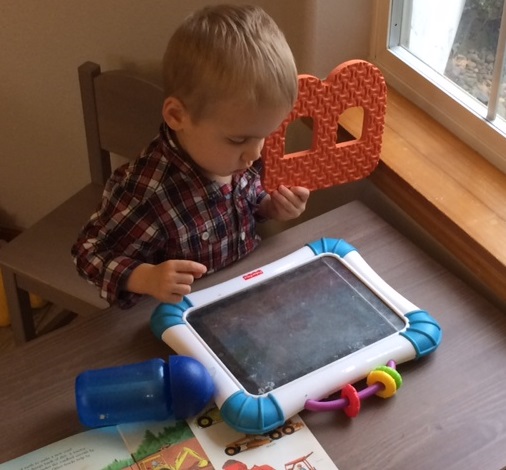I haven’t written for this blog in quite a while. I’ve been in keep-head-above-water mode recently between being a dad, a full work schedule, selling a house, buying a house, and moving. Busy busy, but better than being bored.
I’ve recently started acting on an idea I’ve been kicking around for about a decade: Teaching kids how to use the Internet. You might think “Teach kids how to use the Internet? They were born into the networked world, they’re Digital Natives! They don’t need lessons, they’ll teach us.” Granted, kids pick up new technologies faster than those who have had time to develop habits with old technologies. For example, fictitious person questioning me, I’d bet you’d run circles around a kid racing to find a book in a library based on it’s Dewey Decimal number (which was some pretty awesome tech when it was first developed). But the Digital Natives idea is simplistic and even somewhat dangerous.
Kids that were born into a world with Google, and other information services that provide access to the most abundant collection of information the human race has ever produced, need a different set of skills than previous generations to process that information. Unfortunately this is a set of skills that does not materialize conveniently with access to the Internet. It is also a set of skills that is not being taught anywhere early enough in my opinion, if at all. In the information age, or the age of information, being able to parse the mountains of available content with a critical eye is an incredibly important skill.
In the past few weeks a good friend has been helping me round out the ideas on what an education in Information Literacy would look like for the 5-7th grade cohort. His sons (10 and 13yrs old) have volunteered to be the first beta testers. We have had a few hours of pseudo-structured lesson time on what the Internet is, how Google goes about getting the information it provides when you ask it a question, how a basic web site works and ways to protect your privacy against unwanted tracking, etc… This has been just a baseline to find out what they already know, what interests them, what sticks, and how we can provide information that can make an immediate benefit.
We have a bunch of ideas for future lessons and projects but it all leads towards a better understanding of how to process information and to think critically about both the physical and digital worlds. Now, figuring out how to put it together and not bore them to death in the process…
I’ve also just finished reading Danah Boyd’s excellent new book “It’s Complicated: The Social Lives of Networked Teens” and I’m even more motivated now than I was before. Anyone who is perplexed by the behavior of kids today, and how they use the technology available to them, should read it.
Here are a few great tidbits about the fallacy of the Digital Native and the work we have ahead of us:
“Familiarity with the latest gadgets or services is often less important than possessing the critical knowledge to engage productively with networked situations, including the ability to control how personal information flows and how to look for and interpret accessible information.”
“When we assume that youth will just absorb all things digital through exposure, we absolve ourselves of our responsibility to help teenagers develop necessary skills. Too often, we focus on limiting youth from accessing inaccurate or problematic information. This is a laudable goal, but alone it does teens a fundamental disservice.”
“In a networked world, in which fewer intermediaries control the flow of information and more information is flowing, the ability to critically question information or media narratives is increasingly important. Censorship of inaccurate or problematic content does not provide youth the skills they will one day need to evaluate information independently. They need to know how to grapple with the plethora of information that is easily accessible and rarely vetted. And given the uneven digital literacy skills of youth, we cannot abandon them to learn these lessons on their own.”
I will do my best to provide updates as we work through ideas and with any resources I come across in the process. Please feel free to provide any resources you like as well.

